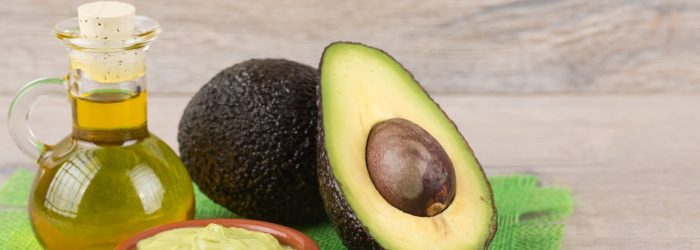Everything you need to know about Butter
Butter is a type of fat extracted from churning fresh or fermented cow milk (mostly) or cream. It has a pale yellow color but that may vary depending on the animal from deep yellow to nearly white. When refrigerated it remains solid but turns soft at room temperature. It has a melting point of 95°F and a smoke point of 250°F which makes it perfect for cooking in low-medium heat. Butter is perhaps the most consumed fat all over the world. It is both used as condiments and in cooking applications. For its rich sublime flavor, it is more popular than any other fat for cooking. Using butter, you can make the sauce, bake or use it for frying.
In this article, you will discover all the nutritional value and health benefits of cooking with butter. You will also learn, how to dispose of used butter and how to recycle expired food grade butter.
Varieties of butter
There are two basic types of butter, unsalted (typically found in sweet cream butter) and salted (with a bit of added salt as a preservative). Sometimes, clarified butter and ghee are also considered butter (pure butterfat from which water has been removed). They have a smoke point of 450°F and can be used in cooking dishes that require high temperatures. There is another type of butter that has almost 86% fat and is called cultured butter (also known as European butter). Among all the types, they are tastier and have a tangy flavor. They are the best option for preparing baked goods such as pie or pastry.
Nutritional Value
Every 14 grams of butter contains 102 calories, 11.5 grams of fats, Vitamins A, E, B12, K, riboflavin, niacin, calcium, and phosphorus. Vitamin A is important because that is both fat-soluble and good for skin health, immune function, and eye health. Vitamin E is vital in keeping away heart diseases and it also works against cell damage.

Health benefits of Avocado Oil
Butter is considered the most healthy cooking fat. Here are the top two health benefits you may get from consuming the right amount of butter every day-
Reduces growth of Cancer and helps in weight management
Research shows that conjugated linoleic acid (CLA, a type of fat found in meat and dairy products) contains properties that may reduce the growth of breast, colorectal, stomach, and prostate cancer. CLA also decreases wanted and harmful fats from the human body, therefore, helps in weight management. Conjugated linoleic acid is also responsible for enhancing immune function and reducing inflammation. It is a fact that butter is rich in CLA which makes it a perfect addition to daily food habits for a better healthy life.
Promotes digestive health, cures different syndromes (IBS) and diseases (Crohn’s)
Butyrate, a type of short-chain fatty acid, is a great source of energy for the cell in the intestine. Butter contains a decent amount of butyrate which not only promotes digestive health by reducing inflammation in the intestine but also helps in electrolyte balance. Some research shows, that butyrate helps in preventing and treating irritable bowel syndrome and Crohn’s disease. Butyrate also plays a great role in improving insulin sensitivity, boosting metabolism, and supporting weight management.
Cooking with butter
Though butter is one of the most nutritious and healthy cooking fat, it has a smoke point of 250°F which is quite low. Therefore, you shouldn’t cook dishes that requires high temperature with butter. This cooking fat is more suitable for low-heated food preparation.
Butter works well sautéing and pan-frying and can help prevent sticking while adding flavor. It is also widely used in Caramelizing, and baking to add a creamy flavor to baked goods and desserts.
Does butter go expired?
Butter is animal fat mainly extracted from cow’s milk. Like any other cooking fat, butter has a fixed lifespan too. In-room temperature, it’s hard to keep butter away from getting rancid. If you want to store them for the long term, it’s better to store them refrigerated. Frozen butter may last for up to 9 months.
How to dispose of old butter?
Butter is popular in cooking for its appealing texture and creamy taste. Commercial kitchens largely use this cooking fat to cook various dishes. Sometimes, food establishments end up with a huge amount of expired food-grade butter that has gone rancid. Expired butter can’t be used in food preparation. What to do with them? How to dispose of old butter?
First of all, according to the commercial kitchen regulation of CDFA, food establishments must dispose of their used cooking oil in the right fashion. Instead of pouring them into the kitchen sink or throwing them outside in the trash, they must store expired or used cooking oil in a proper UCO collection storage facility and hand them over to a licensed IKG hauler for recycling. Expired food grade butter can be recycled into various usable goods including animal feeds.
Recycle expired food grade butter with the Grease Company
The Grease Company, a professional and licensed IKG hauler (UCO collector) is dedicated to providing comprehensive used cooking oil collection service only to the commercial kitchens of California. We collect used cooking oil, expired food grade oil, and yellow grease from restaurants, bakeries, supermarkets, etc. Our technicians are highly trained and completely aware of the regulations imposed by the municipalities. The oil we collect mostly gets recycled into biofuel and animal feeds.
Got over 1000 gallons or pallets of used cooking oil? Call us today, we’re available 24/7.
The Grease Company
One Stop Solution to Used Cooking Oil Collection
Are you looking for professional restaurant cooking oil collector? Call us NOW. Or email us with your details to get a free quote.